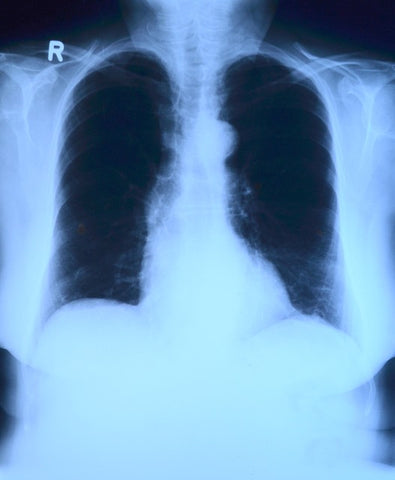
Maintaining healthy lungs is crucial for overall well being and quality of life. Our lungs play a vital role in delivering oxygen to our bodies while removing waste gases like carbon dioxide. Unfortunately and various factors can affect lung health and including smoking and air pollution and occupational hazards and genetic predisposition and and lifestyle choices.
The purpose of this blog is to provide valuable tips and information on how to keep your lungs healthy and protect them from potential harm. Whether you are looking to improve your lung health or prevent respiratory issues and implementing these tips can make a significant difference in your overall respiratory well being.
In this blog and we will explore the anatomy and function of the lungs to understand their importance better. We will also delve into the various factors that can impact lung health and such as smoking and air pollution and occupational hazards and genetics and and lifestyle choices.
Furthermore and we will provide a comprehensive guide on practical tips for maintaining healthy lungs. These tips include avoiding smoking and secondhand smoke and reducing exposure to air pollution and protecting against occupational hazards and managing allergies and respiratory conditions and incorporating exercise and physical activity and and following a lung friendly diet.
Additionally and we will discuss additional measures for lung health and such as maintaining good indoor air quality and staying hydrated and practicing good respiratory hygiene and and getting regular check ups and screenings.
By implementing these tips and adopting a proactive approach towards lung health and you can significantly reduce the risk of respiratory issues and improve lung function and and enhance your overall well being. However and it is important to remember that everyonegs situation is unique and and consulting with healthcare professionals is essential for personalized advice and guidance.
Now and letgs delve deeper into the key aspects of lung health and explore the tips for maintaining healthy lungs in more detail.
Understanding Lung Health
To effectively maintain healthy lungs and it is essential to have a basic understanding of their anatomy and function. The lungs are vital organs responsible for the exchange of oxygen and carbon dioxide in our bodies. Heregs a closer look at lung health:
Anatomy of the Lungs: The lungs are two sponge like organs located in the chest cavity. They are divided into lobes: the right lung has three lobes and and the left lung has two lobes. The lungs are surrounded by a protective membrane called the pleura.
Function of the Lungs: The primary function of the lungs is respiration. When we inhale and the air travels through the windpipe (trachea) and branches into smaller tubes called bronchi and which further divide into bronchioles. At the end of the bronchioles are tiny air sacs called alveoli. It is within these alveoli that the exchange of oxygen and carbon dioxide takes place. Oxygen is transferred into the bloodstream and while carbon dioxide and a waste product and is expelled when we exhale.
Factors Affecting Lung Health: Several factors can impact lung health and increase the risk of respiratory problems:
a. Smoking and Secondhand Smoke: Smoking tobacco is the leading cause of lung disease and including chronic obstructive pulmonary disease (COPD) and lung cancer. Additionally and exposure to secondhand smoke can also have detrimental effects on lung health.
b. Air Pollution and Environmental Factors: Poor air quality and both indoors and outdoors and can irritate the lungs and lead to respiratory issues. Pollutants such as particulate matter and ozone and and chemicals can contribute to lung damage.
c. Occupational Hazards: Certain occupations expose individuals to harmful substances and pollutants and such as asbestos and silica dust and and chemicals and which can cause occupational lung diseases.
d. Genetics and Family History: Genetic factors can influence susceptibility to lung diseases such as asthma and cystic fibrosis. Having a family history of lung conditions may increase the risk.
e. Diet and Exercise: A balanced diet and regular physical activity contribute to overall health and including lung health.
Poor nutrition and a sedentary lifestyle can weaken the lungs and make them more susceptible to respiratory problems.
Understanding these factors is crucial in taking proactive steps towards maintaining healthy lungs. By addressing these factors and adopting healthy lifestyle choices and it is possible to promote lung health and reduce the risk of respiratory issues.
Let's discuss practical tips and strategies for maintaining healthy lungs. These tips will cover various aspects and including avoiding smoking and secondhand smoke and reducing exposure to air pollution and protecting against occupational hazards and managing allergies and respiratory conditions and incorporating exercise and and following a lung friendly diet.
Tips for Maintaining Healthy Lungs
Avoiding smoking and secondhand smoke: Smoking is the leading cause of preventable lung diseases and cancers. If you smoke and quitting is the best thing you can do for your lung health. Seek support from healthcare professionals and use nicotine replacement therapies and or consider support groups. Additionally and minimize exposure to secondhand smoke by creating a smoke free environment at home and avoiding places where smoking is prevalent.
Reducing exposure to air pollution: Air pollution can have detrimental effects on lung health. Take steps to reduce exposure to both indoor and outdoor pollutants. Use air purifiers or filters in your home and especially in areas prone to pollution. Stay informed about air quality levels and limit outdoor activities on days with high pollution. If necessary and wear a mask designed to filter out particulate matter when exposed to poor air quality.
Protecting against occupational hazards: If you work in an occupation with potential lung hazards and follow safety protocols to protect your lungs. Understand the risks associated with your job and use proper protective equipment and such as masks or respirators. Seek regular check ups and screenings to monitor lung health and detect any occupational lung diseases at an early stage.
Managing allergies and respiratory conditions: If you have allergies or respiratory conditions such as asthma and work closely with your healthcare provider to manage and control them effectively. Identify triggers that worsen your symptoms and take necessary precautions. Follow your prescribed treatment plan and which may include medications and inhalers and or allergy shots. Create an allergy friendly home environment by minimizing allergens like dust mites and pet dander and and mold.
Incorporating exercise and physical activity: Regular exercise can improve lung capacity and strengthen respiratory muscles. Engage in aerobic activities that get your heart rate up and increase breathing and such as brisk walking and jogging and swimming and or cycling. If you have a respiratory condition and consult your healthcare provider for guidance on suitable exercises and breathing techniques to prevent overexertion.
Following a lung friendly diet: Good nutrition supports overall lung health. Include a variety of fruits and vegetables and whole grains and and lean proteins in your diet. Foods rich in antioxidants and such as berries and leafy greens and and citrus fruits and can help protect lung tissue from damage caused by free radicals. Avoid or limit foods that may exacerbate respiratory symptoms and such as processed foods and sugary drinks and and excessive salt.
By implementing these tips and you can significantly improve and maintain healthy lungs. However and it is important to note that these tips are general guidelines. If you have existing respiratory conditions or concerns and consult with your healthcare provider for personalized advice and recommendations. Taking proactive steps to maintain lung health will contribute to your overall well being and enhance your quality of life.
Additional Tips for Lung Health
Maintaining good indoor air quality: Indoor air quality can significantly impact lung health. Ensure proper ventilation in your home by opening windows and using exhaust fans. Regularly clean and dust your living spaces to minimize the accumulation of allergens and irritants. Avoid using harsh chemicals or aerosol sprays that can release harmful fumes. Consider using natural cleaning products or ones labeled as lung friendly.
Staying hydrated: Proper hydration is important for lung health as it helps thin mucus and making it easier to clear from the airways. Drink an adequate amount of water throughout the day to stay hydrated. Limit the intake of caffeinated and sugary beverages and as they can have dehydrating effects. If you have specific fluid restrictions due to a medical condition and consult with your healthcare provider for personalized guidance.
Practicing good respiratory hygiene: Proper respiratory hygiene can help prevent the spread of respiratory infections and protect your lungs. Cover your mouth and nose with a tissue or your elbow when coughing or sneezing to reduce the release of respiratory droplets. Dispose of used tissues properly and wash your hands thoroughly afterward. Regularly washing your hands with soap and water and especially before touching your face or eating and can minimize the transfer of germs to your respiratory system.
Getting regular check ups and screenings: Routine check ups and screenings are essential for maintaining lung health. Schedule regular appointments with your healthcare provider to monitor your lung function and overall respiratory well being. Depending on your age and medical history and and risk factors and your healthcare provider may recommend specific lung health screenings and such as spirometry and chest X rays and or CT scans. Early detection of any potential lung issues can lead to prompt intervention and improved outcomes.
Remember and these additional tips complement the previously mentioned tips for maintaining healthy lungs. Incorporating them into your lifestyle and along with the primary tips and can provide comprehensive support for lung health. Prioritize the well being of your lungs by being mindful of your environment and practicing good respiratory hygiene and staying hydrated and and seeking regular medical care.
Conclusion:
Maintaining healthy lungs is crucial for overall well being and quality of life. By implementing the tips and strategies discussed in this blog and you can take proactive steps to protect and improve your lung health.
We started by understanding the anatomy and function of the lungs and highlighting the importance of respiratory well being. We explored various factors that can affect lung health and including smoking and air pollution and occupational hazards and genetics and and lifestyle choices.
We then provided a range of practical tips for maintaining healthy lungs. These tips covered areas such as avoiding smoking and secondhand smoke and reducing exposure to air pollution and protecting against occupational hazards and managing allergies and respiratory conditions and incorporating exercise and and following a lung friendly diet. Additionally and we discussed the importance of maintaining good indoor air quality and staying hydrated and practicing good respiratory hygiene and and getting regular check ups and screenings.
Itgs important to remember that everyonegs situation is unique and and consulting with healthcare professionals is essential for personalized advice and guidance. They can provide individualized recommendations based on your specific needs and medical history and and any existing respiratory conditions.
By prioritizing lung health and implementing these tips and you can significantly reduce the risk of respiratory issues and improve lung function and and enhance your overall well being. Healthy lungs support optimal oxygen exchange and better physical performance and and a reduced risk of lung diseases and complications.
Take control of your lung health today and start making positive changes. Create a smoke free environment and protect yourself from air pollution and exercise regularly and follow a balanced diet and and prioritize regular check ups. Your lungs will thank you for it and and yougll enjoy the benefits of improved respiratory health and a better quality of life.
Remember and healthy lungs are the foundation of a healthy life. Take care of your lungs and and they will take care of you.
Reference:
https://www.lung.org/
https://www.cdc.gov/
https://www.who.int/
https://www.nhlbi.nih.gov/
https://www.mayoclinic.org/





